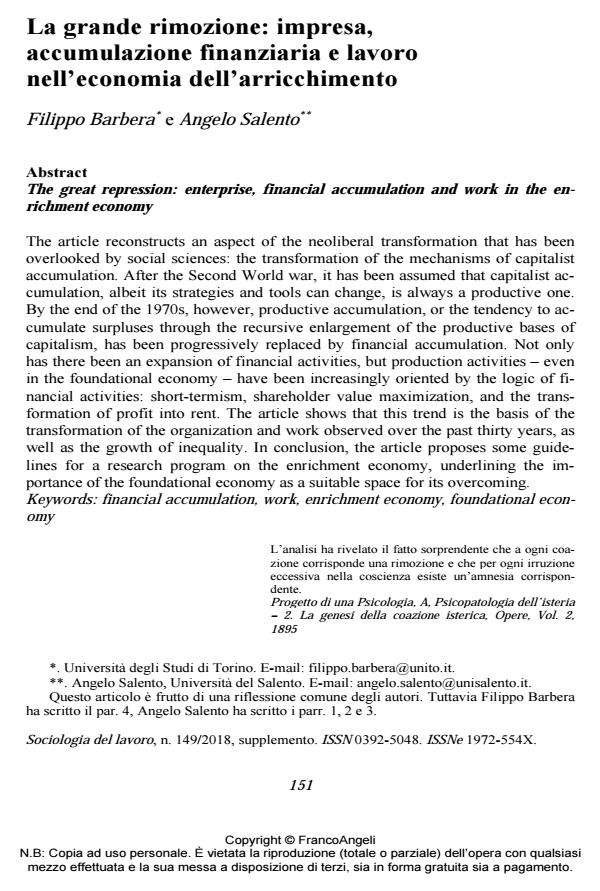The great repression: enterprise, financial accumulation and work in the enrichment economy
Journal title SOCIOLOGIA DEL LAVORO
Author/s Filippo Barbera, Angelo Salento
Publishing Year 2018 Issue 2018/149 suppl.
Language Italian Pages 16 P. 151-166 File size 203 KB
DOI 10.3280/SL2018-149S11
DOI is like a bar code for intellectual property: to have more infomation
click here
Below, you can see the article first page
If you want to buy this article in PDF format, you can do it, following the instructions to buy download credits

FrancoAngeli is member of Publishers International Linking Association, Inc (PILA), a not-for-profit association which run the CrossRef service enabling links to and from online scholarly content.
The article reconstructs an aspect of the neoliberal transformation that has been overlooked by social sciences: the transformation of the mechanisms of capitalist accumulation. After the Second World war, it has been assumed that capitalist accumulation, albeit its strategies and tools can change, is always a productive one. By the end of the 1970s, however, productive accumulation, or the tendency to accumulate surpluses through the recursive enlargement of the productive bases of capitalism, has been progressively replaced by financial accumulation. Not only has there been an expansion of financial activities, but production activities - even in the foundational economy - have been increasingly oriented by the logic of financial activities: short-termism, shareholder value maximization, and the transformation of profit into rent. The article shows that this trend is the basis of the transformation of the organization and work observed over the past thirty years, as well as the growth of inequality. In conclusion, the article proposes some guidelines for a research program on the enrichment economy, underlining the importance of the foundational economy as a suitable space for its overcoming.
Keywords: Financial accumulation, work, enrichment economy, foundational economy
- Finanza, finanziarizzazione, neoliberismo Angelo Salento, in Quaderni di Sociologia /2024 pp.43
DOI: 10.4000/135oj
Filippo Barbera, Angelo Salento, La grande rimozione: impresa, accumulazione finanziaria e lavoro nell’economia dell’arricchimento in "SOCIOLOGIA DEL LAVORO " 149 suppl./2018, pp 151-166, DOI: 10.3280/SL2018-149S11